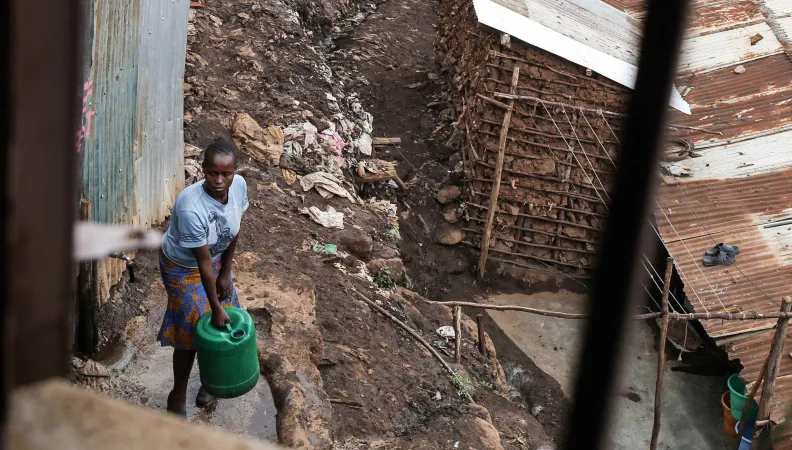Share the page
Improving the living conditions of slum residents in Kenya
Project


-
Project start date
-
-
Project duration
-
25 years
-
AFD financing amount
-
€ 35000000
-
Country and region
-
Location
-
Country wide
-
Type of financing
-
Partners
-
World Bank
-
Beneficiaries
-
Government of Kenya
With the growing urban populations, especially in slums, the sustainable development of major Kenyan cities and their basic facilities have become a priority for the country.
Context
The urban population in Kenya is growing rapidly at a rate of 4% per annum: in 2011, it represented 39% of the total population and is expected to reach 54% by 2030. It is therefore important for the country to ensure its cities’ sustainable development. This requires better access to basic infrastructure such as water, wastewater drainage, public lighting, pedestrian routes, waste treatment and roads.
Description
The Kenya Informal Settlements Improvement Project or KISIP is a slum upgrading project in fifteen urban areas in Kenya. The goal is to improve the living conditions of slum residents by financing the upgrade of infrastructure. The project will include capacity building, improving security of tenure, drainage, roads, footpaths and public lighting and a component involving planning to prevent the growth of slums.
Impacts
The impact of the project will be: Improvement of access to water, Improvement of the environment following the management of drainage (less pollution and floods), Reduced morbidity (cholera, malaria, typhoid) due to improved living conditions in slums, Enhanced security due to investments in public lighting, Enhanced property security following issuance of property titles to slum residents and Improved mobility due to the rehabilitation of roads.


